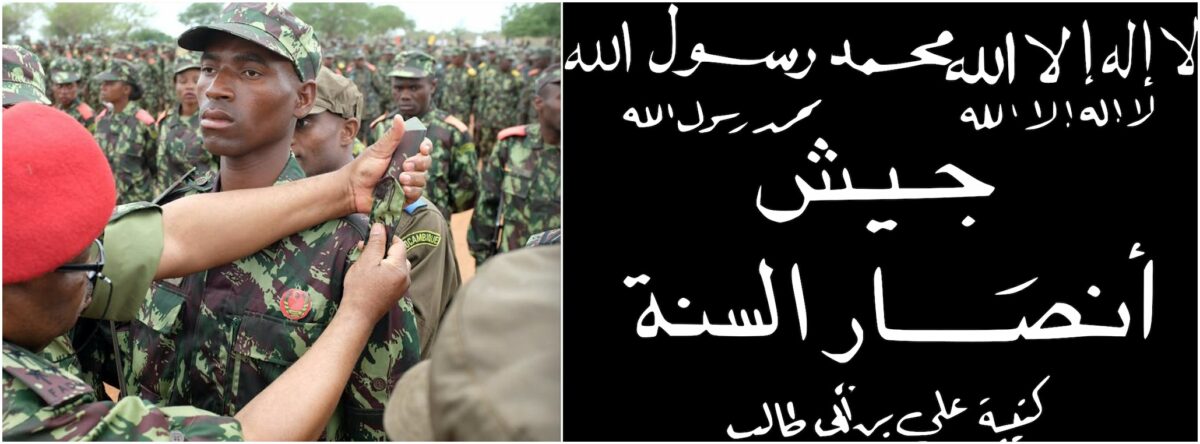On 27 May, the Southern African Development Community (SADC) held the Double Troika Summit of the Heads of State and Government in Maputo, Mozambique.
According to the SADC statement on the summit – the summit received a report on the security situation in Cabo Delgado Province, northern Mozambique, and reaffirmed its solidarity with the Government and people of Mozambique, and the continued efforts in addressing terrorism and ensuring lasting peace and security in Mozambique, which it affirms is also a threat to the SADC Region.
It does appear as though the dire situation in Mozambique is not being treated with the urgency required.
Less than 10 weeks ago, on 24 March 2021, ISIL-linked militants attacked the town of Palma, Cabo Delgado, killing indiscriminately. According to witnesses after a few days of continuous attacks, bodies, including those beheaded, were visible in the streets.
The state of affairs
The Institute of Race Relations’ Terence Corrigan recently wrote: “Plagued by an increasingly violent insurgency, Cabo Delgado is looming humanitarian tragedy – if indeed, it is not so already. But it is more than this. In excess of 2 000 lives have been lost and over 400 000 have been rendered homeless. The insurgency is a matter of profound security concern not only to Mozambique, but also to the region as a whole. It places in jeopardy the developmental prospects of the country, and those of its neighbours. It is a threat that cannot be ignored.”
This looming threat has been the case for many years, before Al Shabaab started major activity in October 2017. As early as 2004, military training camps had been established in Cabo Delgado. Alongside Mozambicans, recruits from Somalia, Pakistan, Bangladesh and South Africa were receiving training.
Dr Gilbert Khadiagala, – Jan Smuts Professor of International Relations and Director of the African Centre for the Study of the United States, Wits University – wrote this week that he suggests that “the SADC does not have a remarkable record of military interventions in civil conflicts in the region. It would therefore be misguided to attempt an intervention without adequate understanding of the political dynamics at play in northern Mozambique”.
Dr Khadiagala explained that in Mozambique, the insurgents have grown because of preexisting grievances. “This includes the political marginalisation of the largely poor and rural Muslim-dominated region” he said. This happens to have coincided with the discovery of one of the world’s largest natural gas deposits, which Dr Khadiagala argues, has “turned Mozambique into a typical resource-cursed nation, where natural resource abundance in marginalised communities predictably fuels dissent and rebellion“.
Unprecedented military operation
It is important to note that this would be an unprecedented operation.
The somewhat similar military intervention operation in the Democratic Republic of Congo (DRC), although involving some SADC member states including South Africa, has been ongoing for over a decade under the UN peacekeeping mission MONUSCO. In Mozambique – the SADC would be on its own.
Given Mozambique’s President Filipe Nyusi’s recent statements on being “selective” about what assistance Mozambique would be willing to receive in order to maintain sovereignty, deep concern for the entire Southern African Region is more than warranted.
In a 29 March conference held in the United States, on U.S. Participation in an upcoming D-ISIS Ministerial, Acting Special Envoy for the Global Coalition to Defeat ISIS, John Godfrey, was questioned about his take on the attack in Palma on 24 March.
Special Envoy Godfrey stated: “I think that in general it comports with what we’ve seen from ISIS-Mozambique in a couple of important and disturbing ways. One, just the sheer brutality of the events on the ground there. The horrific killings of civilians is something that we’ve seen elsewhere in attacks. And the second is the sort of increased brazenness of ISIS-Mozambique, and that’s principally reflected in the fact that they’ve gone from conducting sort of hit-and-run raids, which is really what characterized their initial activities in 2017 and ’18 when they were emerging onto the scene, and now are seeking to take and hold at least for some initial period of time some of the towns that they’ve conducted these attacks against.”
He went on to discuss the obvious and unavoidable threat of ISIS trying to expand its territory.
When thinking of the level of threat and adequate response needed, and the level of corruption within South African leadership, in addition to the decline of the South African National Defence Force as stated by Parliament, suffice it to say that the SADC members may be ill-equipped to cope with such a disaster.

